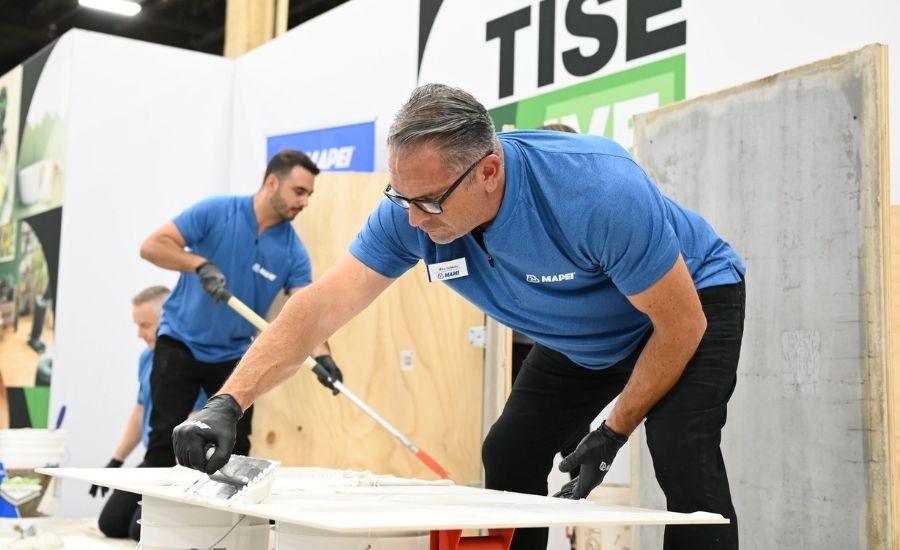From renovations and remodels to expansions and new builds, residential and commercial construction markets are enjoying this time of revitalization, as homeowners look to enhance their living spaces and the resurgence of commercial business across categories gains momentum. The demand to build is there, but the product supply is not, and flooring manufacturers across categories are feeling the burn, as they find ways to work around disruptions in the supply chain.
“Supply chain is a little different in a couple aspects of our business right now, specifically our adhesive products,” says Kevin Carroll, business development manager, Mapei.
Months after a winter storm devastated Houston, Texas, and surrounding areas—where several raw materials that are in flooring adhesive products are produced—Mapei is still experiencing the ramifications of the storm, which have caused a disruption to the production of its adhesives.
“There was a storm down in Texas and Louisiana, where there was a lot of icing over of the big petrochemical plants, and a situation that as already somewhat difficult, became much more of a difficult situation to get hands on supplies,” said John Lio, director of marketing, DriTac.
DriTac’s recent acquisition of Sika has taken the companies from competitors in the wood flooring and resilient adhesive markets, to a united front, allowing them to better serve a wider customer base, especially once supply disruption is alleviated.
“We get what we get and we make what we can make,” says Sika’s Clint Anna. “It’s been a little bit difficult, but it’s an industry wide problem so we are working through it as best we can. Luckily our sales numbers are pretty good, so we seem to be getting around it somewhat, but we’ve got some customers that are struggling to get what they need.”
Delays in customers’ go-to products are forcing some to look to new suppliers to meet their needs. “We’ve got a lot of people coming to us, wanting to buy product, but the problem is, you have to measure if it’s [business] that will maintain once the supply chain is better, or is this something where they just need products for now?,” said Anna.
On one hand, this is a positive, he says, as people who have never used Sika products are now giving them a try and are potentially customers that will stick around for good. But on the other hand, the manufacturer has to be sure that product is still readily available and accessible to its core customers.
Across categories, business is good and once the disruption to supplies is resolved, it will be even better. Fortunately for some, better business is happening sooner rather than later.
To support its boom in business, Karndean is leaning heavily on its business model, which is to always keep a high surplus of inventory. The manufacturer is also leaning on its global operations, leveraging its entities in England and Australia to continue getting products to customers.
“The other thing that’s been good for us is the fact that business has been so good for our retailers, that if we have some product that has a longer lead time, the feedback that we are getting from our customers is that they are already booked out for that length of time, so we’ve been able to give them the product when they need it, because the demand is there,” said Karndean’s director of marketing Jenne Ross.
2021 marks 30 years of business for Jeffery Court and in celebrating, the tile manufacturer is recognizing the milestone with a commemorative product line, which has fortunately been able to get to end users without interruption, along with the company’s other product offerings.
“When people are looking for something—and during through the [pandemic], they’ve had trouble getting things—we didn’t have that issue,” says January Chance, national accounts manager, Jeffrey Court. “Our leaders never want our reputation to be impacted by world events. So, where we could, we brought in more. So it’s fared well, because not only was COVID an issue and where you could get things and what factories were open, but now there’s the freight issues with the containers.”
Chance says the company has opened additional warehouses and is still well stocked. “We always want to stand by those deliverables and the standards we’ve set.”
For more on supply chain issues, watch this video with Paul Murfin, president, Taylor Adhesives. He gives insight to how supply chain issues continue to impact the installation segment of the business.


Report Abusive Comment